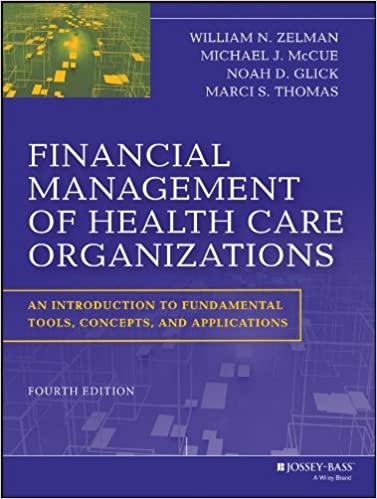Glenn Medical Center has seen a growth in patient volume since its primary competitor decided to relocate
Question:
Glenn Medical Center has seen a growth in patient volume since its primary competitor decided to relocate to a different area of the city. To accommodate this growth, a consultant has advised Glenn Medical to invest in a positron-emission tomography (PET)
scanner. The cost to implement the unit would be $4,000,000. The useful life of this equipment is typically about six years, and it will be depreciated over a six-year life to a $400,000 salvage value. Additional patient volume will yield $3,000,000 in new revenues the first year. These first-year total revenues will increase by $600,000 each year thereafter, but the unit is expensive to operate. Additional staff and variable costs, excluding depreciation expense, will come to $2,200,000 the first year, but these expenses are expected to rise by $400,000 each year thereafter. Over the life of the machine, net working capital will increase by $18,000 per year for six years.
a. Assuming that Glenn Medical Center is a nontaxpaying entity, what is the project’s NPV at a discount rate of 9 percent, and what is the project’s IRR? Depending on the method used, what is the investment decision?
b. Assuming that Glenn Medical Center is a taxpaying entity and its tax rate is 40 percent, what is the project’s NPV at a discount rate of 9 percent, and what is the project’s IRR? Depending on the method used, what is the investment decision? (Hint:
see Appendices C, D, and E.)
Step by Step Answer:

Financial Management Of Health Care Organizations
ISBN: 9781118466568
4th Edition
Authors: William N. Zelman, Michael J. McCue, Noah D. Glick, Marci S. Thomas





